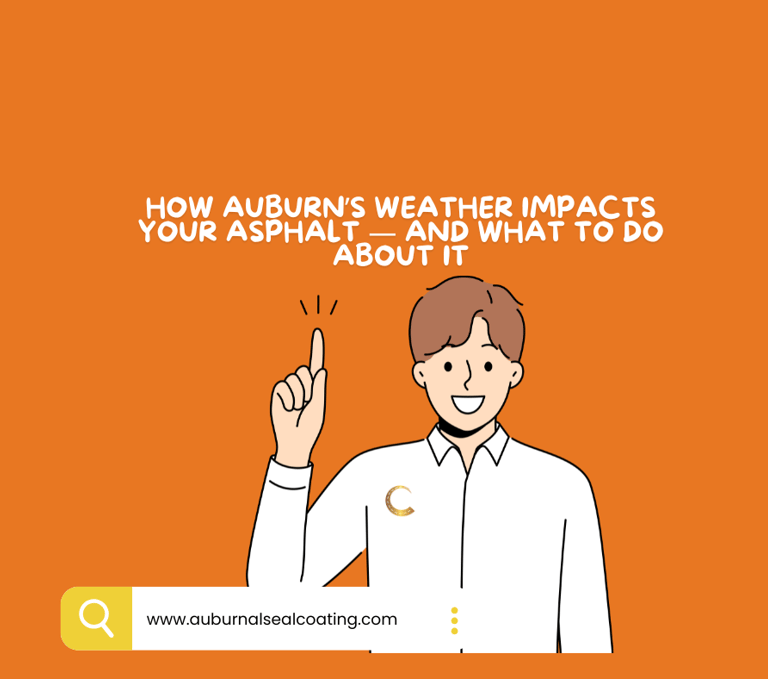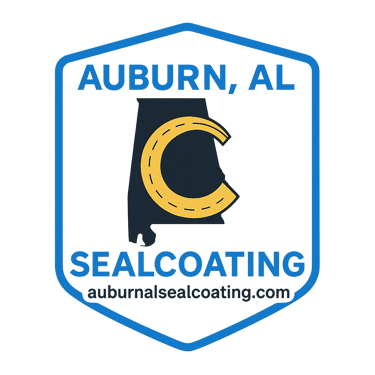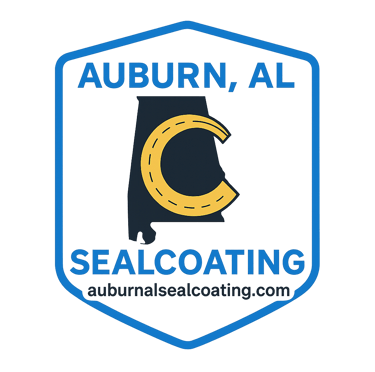Top-Rated Asphalt Sealcoating & Line Striping in Auburn, AL
➡️ REQUEST A FREE ESTIMATE TODAY!
How Auburn’s Weather Impacts Your Asphalt — and What to Do About It
Auburn AL’s weather can be unpredictable — blazing summers, heavy rains, and sudden cold snaps can all wreak havoc on your asphalt. Whether you manage a commercial property or simply want to protect your residential driveway, understanding how local weather affects your pavement is critical. In this detailed guide, we break down how Auburn’s unique climate impacts asphalt performance and longevity — and what proactive steps you can take to prevent costly damage. From UV degradation to moisture infiltration, we’re covering it all so your blacktop stays protected, safe, and looking professional year-round.
auburnalsealcoating.com - Chattahoochee Valley Sealcoating, LLC
4 min read
The Brutal Heat of Auburn Summers
Auburn’s sweltering summer temperatures often soar into the 90s, and that heat doesn't just impact people — it affects your asphalt in serious ways. Under direct sunlight, pavement surface temps can climb above 130°F, causing oxidation and surface hardening. This leads to brittle asphalt that becomes more susceptible to cracks and potholes. Without a protective sealcoat, your blacktop can fade, dry out, and start unraveling from the top down.
What to do: Sealcoat regularly — especially every 2–3 years in Auburn. A fresh coat reflects UV rays, preserves the asphalt binder, and slows down heat-related deterioration. Properties without shade or tree coverage should be extra vigilant.
Heavy Rain and Drainage Problems
While Auburn isn’t the rainiest city in Alabama, it gets its fair share of intense downpours, especially in the spring and summer. Water is one of asphalt’s biggest enemies. If rainwater penetrates through cracks or low spots in the surface, it seeps into the sub-base, softening it and causing long-term structural failure.
What to do: Crack sealing and proper grading are your first line of defense. Always ensure your lot has working drainage, and invest in hot rubber crack repair before sealcoating. This keeps water out and prevents deep damage that would eventually require costly repaving.
Freeze-Thaw Cycles and Sudden Temperature Drops
Although Auburn winters are relatively mild, sudden cold snaps — especially after rain — can trigger freeze-thaw cycles. Water trapped in small cracks expands as it freezes, pushing the asphalt apart. Then it thaws, and more water rushes in. Over time, this process causes spidering, large cracks, and potholes.
What to do: Schedule repairs before winter hits. Even minor cracks should be sealed ahead of the first freeze. If you’ve already noticed flaking or edge damage, get a free estimate for patching and sealing — it’ll save you thousands in repairs come spring.


Humidity’s Hidden Toll on Pavement Integrity
Auburn’s humidity levels often hover between 60–90% depending on the season — and that high moisture content in the air can cause more than just discomfort. When humidity saturates the air, it also accelerates surface oxidation and affects the curing process of newly laid or recently repaired asphalt. If humidity levels are too high during application, sealants may not bond properly or take longer to dry, creating weak spots vulnerable to wear and tear.
What to do: Always work with a professional contractor (like Chattahoochee Valley Sealcoating) who understands local humidity patterns and uses fast-curing sealants designed for humid Southern climates. We monitor Auburn’s forecast daily to schedule your job at the optimal time — reducing the risk of early breakdown or tacky surfaces.
The Damage Caused by Storm Debris and Tree Coverage
Summer storms and heavy wind gusts in Auburn often scatter branches, leaves, and debris across driveways and parking lots. While this may seem like a cleanup issue, it’s actually an asphalt maintenance concern. Branches scraping the surface can accelerate erosion of unsealed asphalt. Leaf debris, when left in place, traps moisture and acids that eat away at the binder, leaving discolored, weakened spots that crack prematurely.
What to do: Regular maintenance is key. Pressure wash your lot seasonally and after major storms. Schedule sealcoating to add a protective barrier, and consider striping reapplication if your lot looks dull or scraped. If you’re near heavy tree coverage, increase your frequency of inspections — catching issues early saves money later.
Cold Snaps and Overnight Freezing — The Silent Asphalt Killer
While Auburn, AL may not face harsh northern winters, it’s the surprise overnight freezes that often do the most silent damage to pavement. When water seeps into existing cracks during a rainy afternoon and temperatures dip suddenly at night, that moisture expands as it freezes. The result? Cracks widen, edges crumble, and in time, potholes form. Even one cold snap after a wet day can cause hundreds of dollars in new damage if your pavement isn’t properly sealed.
What to do: Preventative crack filling before the cooler months is a must. We use premium hot rubber crack filler that flexes with changing temps — sealing out water before it ever gets a chance to freeze. Pair it with a fresh coat of sealant and your surface becomes freeze-resistant, keeping winter wear at bay.
Springtime Moisture and the Risk of Mold, Mildew, and Staining
Auburn’s vibrant spring often brings rising humidity and longer rain cycles — a perfect breeding ground for mold, algae, and mildew on untreated asphalt. Left unchecked, these growths create slippery conditions and unsightly green or black stains across your lot. Mold can also compromise line striping visibility, which is a safety issue for commercial properties and a liability waiting to happen.
What to do: Sealcoating is your number one defense — a fresh seal blocks moisture from penetrating porous asphalt. Additionally, annual pressure washing and routine inspections can prevent buildup. For businesses, combining sealcoating with restriping not only boosts curb appeal but also ensures ADA compliance and pedestrian safety during the busy spring season.
Long-Term Asphalt Health in Auburn, Alabama
The Smartest Investment You’ll Make This Year
Too many property owners in Auburn wait until their pavement looks bad before taking action — but by then, it’s often too late. The truth is, every weather event in Lee County, from sudden heatwaves to pop-up thunderstorms, quietly eats away at your asphalt’s integrity long before cracks or potholes appear. And once the damage becomes visible, it’s already costing you more than it should.
Sealcoating isn’t just about aesthetics. It’s about preserving your investment, maintaining a safe environment for customers and tenants, and projecting professionalism with every vehicle that pulls in. Properly maintained pavement lasts twice as long, requires fewer emergency repairs, and can boost property value and curb appeal significantly.
At Chattahoochee Valley Sealcoating, we’ve helped Auburn businesses, churches, HOAs, and homeowners extend the life of their pavement by years — and we’re proud to bring that same expertise to your project. With every job, we factor in Auburn’s unique climate, soil movement patterns, and seasonal weather shifts, delivering solutions designed for long-term success, not just a quick fix.
auburnalsealcoating.com
Powered by Chattahoochee Valley Sealcoating, LLC
An independent local parking lot repair resource operated by Chattahoochee Valley Sealcoating, LLC, a privately owned company serving Auburn, Alabama.


